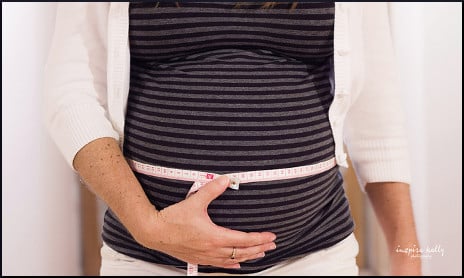Edward Archer, Ph.D., works at the University of Alabama at Birmingham’s Nutrition and Obesity Research Center, where his bio says:
He is an obesity theorist and computational physiologist, and has a broad interdisciplinary background with graduate degrees and training in physiology, psychology, nutrition, exercise science, and epidemiology. His research spans the continuum of human bioenergetics, from the physiology of nutrient energy partitioning to national nutrition surveillance and chronic non-communicable disease epidemiology.
In the light of several recent news stories about obesity genes, we looked at Archer’s assertion that the search for obesity genes has failed. Their whereabouts was only one of several questions that came up as he studied discoveries in many different fields. Everyone is trying to figure out what really causes obesity, but if some of the other “answers” were true, he felt that everyone, without exception, would unavoidably be obese. Regarding the findings in the field of genetics, he is unimpressed, and says:
Despite the recent fanfare over the identification of a suite of genes associated with obesity, they explain less than 2 percent of the variation in obesity between individuals. This leaves the other 98 percent—known as the missing heritability—still to be discovered.
Dr. Archer tells how, as a student, he was intrigued by the size difference between mice where there should have been no difference, because they were genetically identical and all ate the same food. With the same nature (their DNA) and the same nurture (their diet) they were supposed to be the same weight. Looking into it, he realized that when pregnant mice were deprived of exercise wheels, their kids had bigger, fatter kids. He says:
While the first and second generations weren’t much larger, subsequent generations certainly were. To me, this was an amazing observation: The activity levels of grandmothers and mothers during pregnancy determined the fatness of future generations.
For anyone raised on the King James Bible, this is uncomfortably close to verses in the book of Exodus and elsewhere that speak of “visiting the iniquity of the fathers upon the children, and upon the children’s children, unto the third and to the fourth generation.” Except in this case, it’s the mothers who come in for some blame. At the same time, Dr. Archer exonerates them in language that is also biblical when he says “gluttony and sloth are not the primary determinants of obesity.” Those are, of course, the archaic words for eating too much and not exercising enough.
Dr. Archer believes he has pinpointed the single most important cause of obesity: sedentary female ancestors. (This is a circumstance, of course, over which a person has no power. The knowledge is useless for self-interest, and only useful as a gift to bestow on future generations.) The theory was introduced in the November issue of the Mayo Clinic Proceedings, under the title, “The Childhood Obesity Epidemic As a Result of Non-Genetic Evolution: the Maternal Resources Hypothesis.”
Exhaustive research convinced Dr. Archer that the “missing heritability” had been located in “a combination of a mother’s body composition and physical activity during pregnancy.” Here’s how it works:
When pregnant women are physically active, the increased energy demands redirect nutrients to her muscles and away from her fetus. This competition between the mother’s muscles and the developing fetus’s fat cells produces leaner, healthier babies.
To put it another way, the uterine environment permanently alters “the metabolic processes that predispose some fetuses to obesity and metabolic disease.” When a prospective mother is inert, this healthful and productive competition for resources does not take place. If the mother’s body isn’t grasping for energy from nutrients, those nutrients turn into bad news for the growing fetus. Filled with all those unneeded fat cells, millions of babies are on track for a high birth weight, and then probably for adult obesity and Type 2 diabetes and “Their genes and food intake are irrelevant to the process.”
The big take-away here is not that pregnant women need to get more exercise (although they do). According to Archer, a sedentary lifestyle before pregnancy can affect the uterine environment and thus a woman’s children and grandchildren. To give future generations the best chance at avoiding obesity, women should lead healthy, active lives even before they get pregnant.
Your responses and feedback are welcome!
Source: “Novel Theory Connects Mothers to Childhood Obesity,” Newswise.com, 11/17/14
Source: “The real reason that people are obese,” washingtonpost.com. 06/15/15
Image by Kelly Hunter


 FAQs and Media Requests:
FAQs and Media Requests: 











